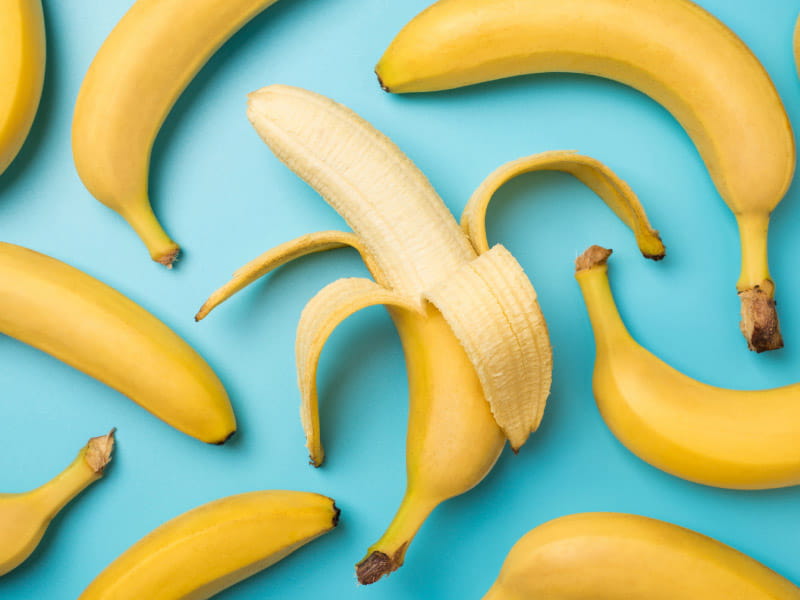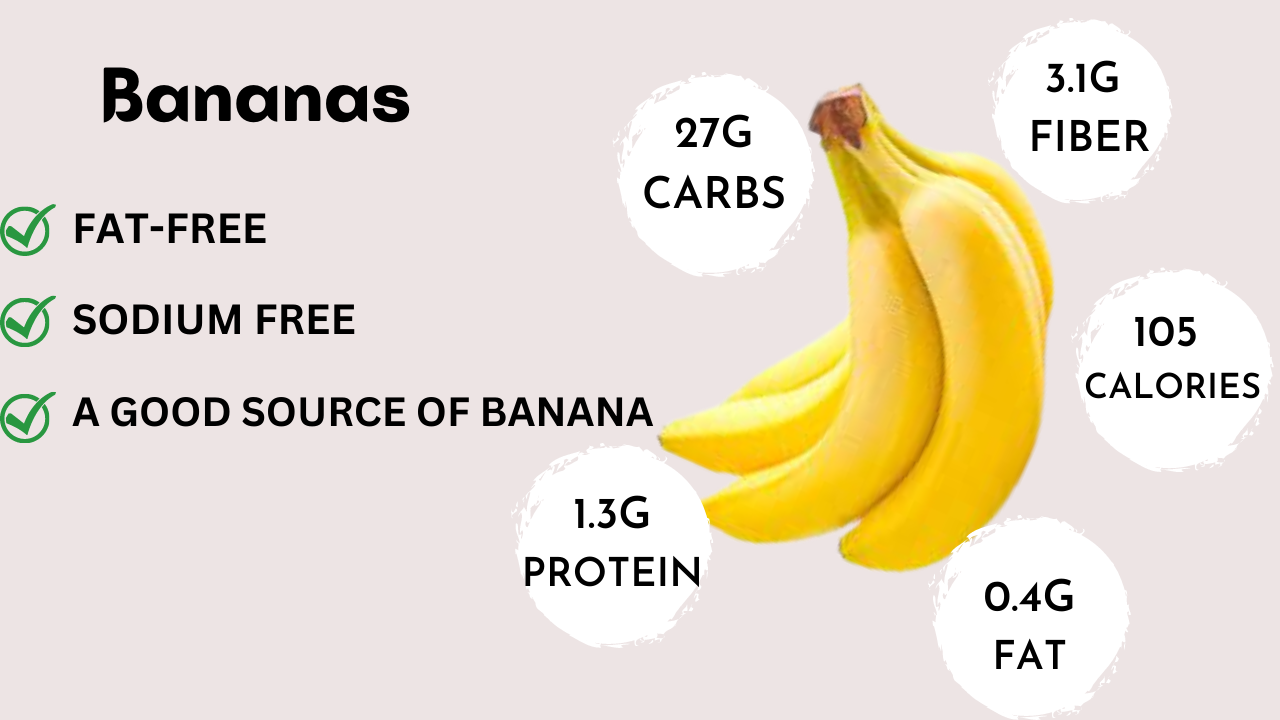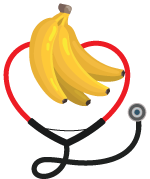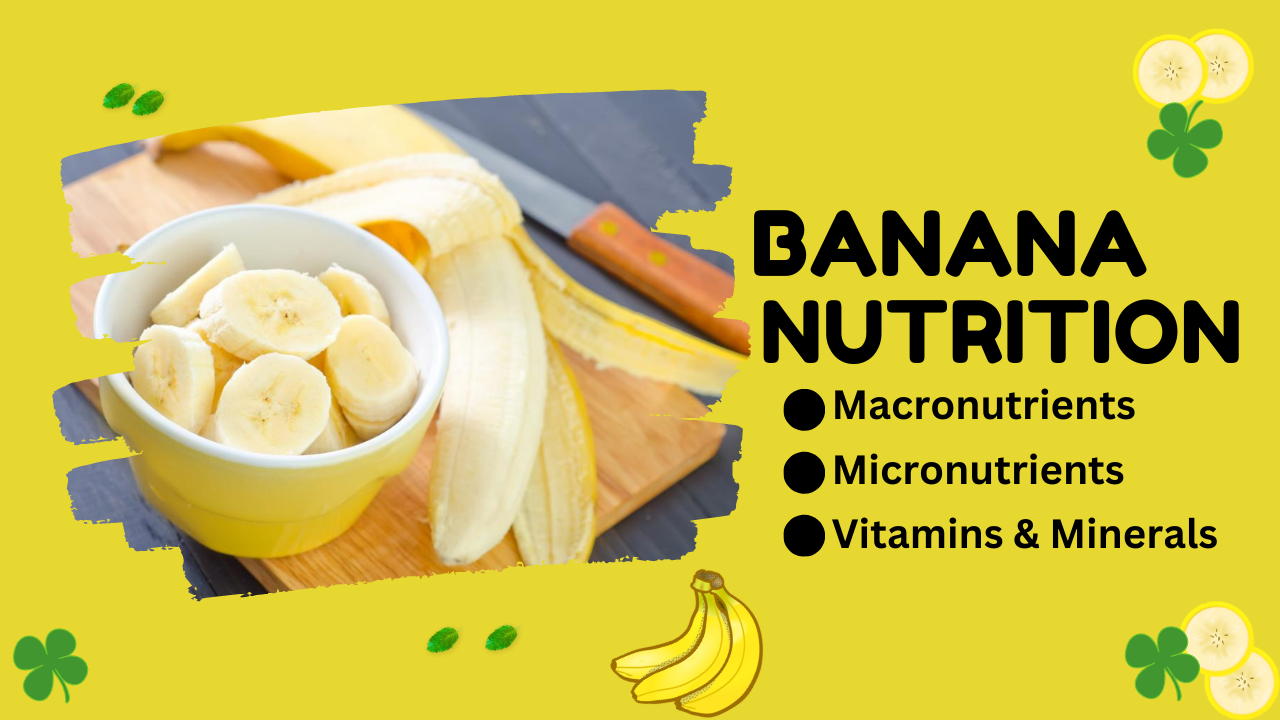Bananas are one of the most commonly consumed fruits worldwide. They are known for their sweet taste and creamy texture, making them a favorite among all age groups.
They are a good source of dietary fiber, vitamin C, vitamin B6, and potassium. This is a comprehensive guide that covers all aspects of bananas, from their nutritional value to their impact on our overall health. We aim to provide readers with a thorough understanding of how bananas can help improve our well-being.
Bananas
Bananas are a nutrient-rich fruit that has been enjoyed by people for centuries. They are known for their sweet taste and soft texture, but they also offer numerous health benefits. Bananas are high in fiber, vitamins, and minerals that are essential for maintaining good health. [1]

Banana Nutrition
Bananas are a good source of potassium, vitamin C, vitamin B6, and dietary fiber. These nutrients are essential for various functions in the body, such as maintaining healthy blood pressure, supporting the immune system, and promoting healthy digestion. [2]
Bananas are a rich source of several essential nutrients, including vitamins, minerals, and fiber. Here’s a breakdown of the nutritional value of one medium-sized banana:

Macronutrients in Bananas [3]
- Calories: 105
- Carbohydrates: 27 grams
- Protein: 1.3 gram
- Fat: 0.4 grams
- Fiber: 3.1 grams
Micronutrients in Bananas
- Vitamin C: 17% of the daily recommended intake (DRI)
- Vitamin B6: 22% of the DRI
- Potassium: 12% of the DRI
- Manganese: 16% of the DRI
- Magnesium: 8% of the DRI
- Folate: 6% of the DRI
Dietary fiber
Dietary fiber is essential for maintaining digestive health, and a medium-sized banana can provide around 3 grams of fiber. [4]
Vitamin C is an important antioxidant that supports a healthy immune system, and a medium-sized banana can provide around 10% of the recommended daily intake of this vitamin. Vitamin B6 is important for brain development and function, and a medium-sized banana can provide around 20% of the recommended daily intake of this vitamin.
Potassium
Potassium is a mineral that is essential for several bodily functions, including the regulation of blood pressure and the proper functioning of the heart and kidneys. A medium-sized banana can provide around 400-450 mg of potassium, which is about 10% of the recommended daily intake. [5]
Antioxidants
Bananas also contain antioxidants, which are compounds that help to protect the body against damage from harmful molecules called free radicals. Free radicals can cause oxidative stress, which is associated with several chronic diseases, including cancer, heart disease, and Alzheimer’s disease. The antioxidants in bananas, such as dopamine and catechins, can help to neutralize free radicals and reduce oxidative stress in the body. [6]
Low-fat
Bananas are also a low-fat, low-calorie fruit, making them an excellent choice for those looking to maintain a healthy weight. A medium-sized banana contains around 105-110 calories, making it a great snack to satisfy hunger without consuming too many calories. [7]
Health Benefits of Bananas
Bananas have many health benefits, such as improving overall health. Some of the most notable benefits include: [8]
1: Improved Heart Health
Bananas are high in potassium, a nutrient that has been shown to lower blood pressure and reduce the risk of heart disease. [9]
2: Better Digestive Health
Bananas are a good source of dietary fiber, which can help improve digestion and prevent constipation. [10]
3: Enhanced Athletic Performance
Bananas are a popular snack among athletes because they are high in carbohydrates, which provide energy for physical activity. [11]
4: Boosted Mood
Bananas contain tryptophan, an amino acid that is converted to serotonin in the brain. Serotonin is a neurotransmitter that can help improve mood and reduce symptoms of depression. [12]
Incorporating Bananas into Your Diet
There are many ways to incorporate bananas into your diet. Here are a few ideas:
- Eat a banana as a snack between meals.
- Add sliced bananas to your breakfast cereal or oatmeal.
- Use bananas in smoothies or baked goods.
- Freeze bananas and blend them to make a healthy, homemade ice cream.
Conclusion
Bananas are a nutrient-rich fruit that offers numerous health benefits. They are an excellent source of vitamins, minerals, and dietary fiber, and they have been linked to improved heart health, better digestion, enhanced athletic performance, and improved mood. While bananas are generally safe for consumption, some people may be allergic to them or experience digestive issues if consumed in large amounts. However, for most people, bananas are a great addition to a healthy and balanced diet.
FAQs
Can bananas help with weight loss?
Bananas are a healthy and nutrient-rich food, they are also relatively high in calories and carbohydrates.
How many bananas should I eat in a day?
The recommended daily intake of bananas is one to two medium-sized bananas per day.
Can bananas cause constipation?
Bananas are a good source of dietary fiber, which can aid in regulating bowel movements and preventing constipation. However, consuming too many bananas or not drinking enough water may lead to constipation.
Can bananas improve skin health?
Bananas contain vitamin C, which is essential for healthy skin. Additionally, the antioxidant properties of bananas can protect the skin against damage from free radicals.
Are bananas good for athletes?
Bananas are an excellent source of carbohydrates and potassium, which are essential for energy during exercise and preventing muscle cramps and soreness. Therefore, bananas are a great addition to an athlete’s diet.

